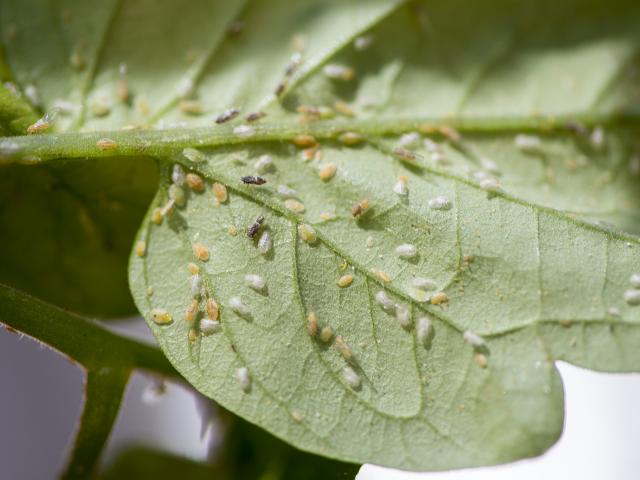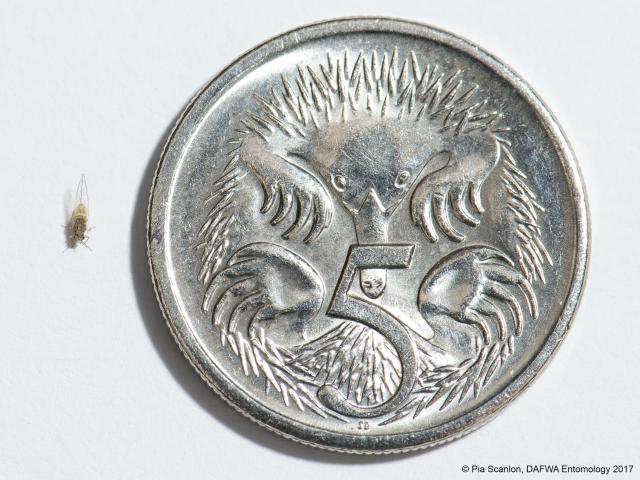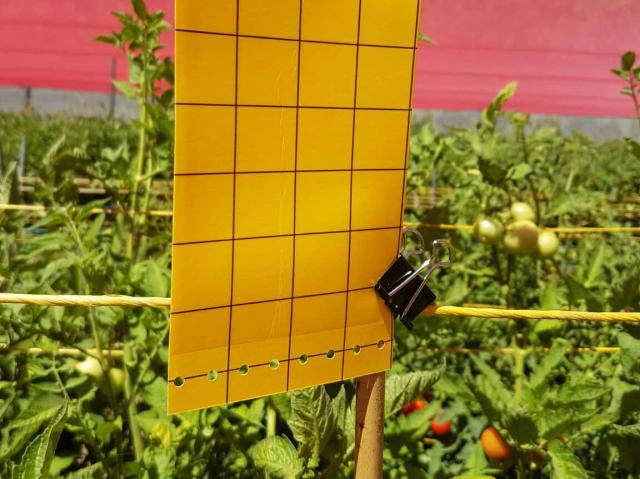Response to exotic plant pest continues

The Department of Agriculture and Food is working with the State’s horticulture industry on a management plan to combat tomato potato psyllid, following a national decision that it cannot be eradicated in Australia.
The damaging insect pest was detected in Western Australia for the first time in February, prompting a national biosecurity response. It has not previously been found in Australia.
Tomato potato psyllid attacks a range of vegetable crops in the Solanaceae family including potato, tomato, eggplant, capsicum, chilli, tamarillo and sweet potato.
Over the past three months, the department has had more than 130 staff working on the response and has carried out extensive trapping and surveillance throughout Perth and the State’s horticulture production regions to check for the pest and take measures to stop it spreading.
The department commends industry and the community for their efforts in this response as we continue to examine the best way to manage this pest and support growers into the future.
Surveillance
Since the initial detection, close to 8000 surveillance ‘sticky’ traps were installed in regional and metropolitan areas and inspections carried out on more than 1400 properties across the State, including more than 530 commercial horticulture and retail properties. The psyllid was found on more than 70 properties and is now considered to be quite widespread in the metropolitan area. There were also 18 psyllid infected properties found outside the metropolitan control area, all of which have now been treated.
As part of the response, the department has collected thousands of plant samples and tested for the associated bacteria Candidatus Liberibacter solanacearum (CLso) which can be carried by the psyllid, and is a threat to our potato and horticulture industries. The bacteria is not a threat to animal or human health.
More than 8800 plant samples were tested for the CLso bacteria, and more than 30 000 potato tuber samples screened for zebra chip disease. There have been no detections of the bacteria to date.
Transition to management
The National Management Group agreed that it was not technically feasible to eradicate tomato potato psyllid, and supported transitioning to a management program.
The department is working with industry and national partners on a 12-month management plan, which will focus on control options on farm, supply chain management and restoring access to interstate markets for affected produce.
This work includes identifying key areas for further research to improve management outcomes and market access.
Over the month of May, there will be concentrated trapping for the psyllid in the metropolitan control area to test for the CLso bacteria where higher populations of the psyllid exist and again in Spring. This will build confidence that CLso is not present in WA.
Existing quarantine and movement controls in Western Australia remain in place for now to minimise the risk of spreading the psyllid within the State.
Check and report
To assist in WA’s surveillance efforts, the department needs help from:
- Commercial vegetable growers to check for signs of the psyllid and report via the MyPestGuide Reporter app available from the Google Play or the App Store. Alternatively, email photos with your name, address and mobile number to info@agric.wa.gov.au, or call the Pest and Disease Information Service on 1800 084 881.
- Home and community gardeners who suspect they may have TPP should send a photo to DAFWA via the MyPestGuide Reporter app, or email photos to info@agric.wa.gov.au. Alternatively, call the Pest and Disease Information Service on 1800 084 881. For more information on how to check the garden, please view the ‘How to check my vegetable patch’ video.
Restrictions on interstate trade
The department has established a market access team to develop protocols with other states to help facilitate interstate trade for Western Australian produce which has been restricted as a result of the psyllid detection.
New South Wales, South Australia, Victoria, Queensland and the Northern Territory have emergency interstate movement controls in place for the psyllid and CLso host fruit, vegetables and plant material, and used machinery and equipment from WA.
NSW, Victoria and South Australia have introduced additional restrictions on a much broader range of conditional non-host plants and produce. Full details of the entry conditions are updated on the NSW, Victorian and South Australian department websites.
Exporters should contact the Quarantine WA Exports Officer to verify export requirements:
More information is available from the department website agric.wa.gov.au/tpp
About TPP
Tomato potato psyllid is a tiny sap-sucking insect with three stages of development – egg, nymph and adult. Adults and nymphs of tomato potato psyllid cause injury to plants by feeding with sucking mouth parts.
Look for the insect in all its life stages on the underside of leaves.
Signs of TPP include:
- insects jumping from the foliage when disturbed
- white sugar-like granules which coat the plant leaves and stems, and can lead to the development of sooty mould
- yellowing of leaf margins and upward curling of the leaves
- severe wilting of plants caused by high numbers of psyllids feeding
- shortening of stem internodes
- stem death similar to other potato and tomato disorders.
Biosecurity reminders
- Good farm biosecurity procedures should be in place to prevent the entry, establishment and spread of pests and diseases.
- Practice sound crop hygiene/biosecurity practices to prevent the entry, establishment and spread of pests and diseases.
- Proper signage to restrict entry, routine surveillance for pests, on-farm clean down facilities, and action plan and checklist are all part of a farm biosecurity regime.
- The weeds nightshade, groundcherry, matrimony vine, and field bindweed are also hosts of the pest and management of these should be considered.
- More information on biosecurity is available at the Farm Biosecurity website
- Additional resources include the AUSVEG Farm Biosecurity Plan
Further information
More information, including how to look for and report the pest, the latest Industry update and details on the Quarantine Area Notice, are available on the department’s website at agric.wa.gov.au/tpp
Department of Agriculture and Food, WA
Rohan Prince, Industry Liaison
Phone: +61(0)429 680 069
Email: rohan.prince@agric.wa.gov.au
Pest and Disease Information Service
Phone: 1800 084 881
Email: info@agric.wa.gov.au


